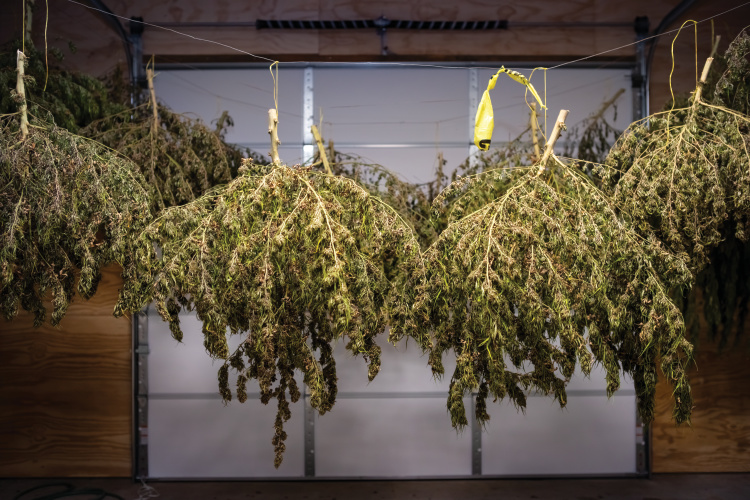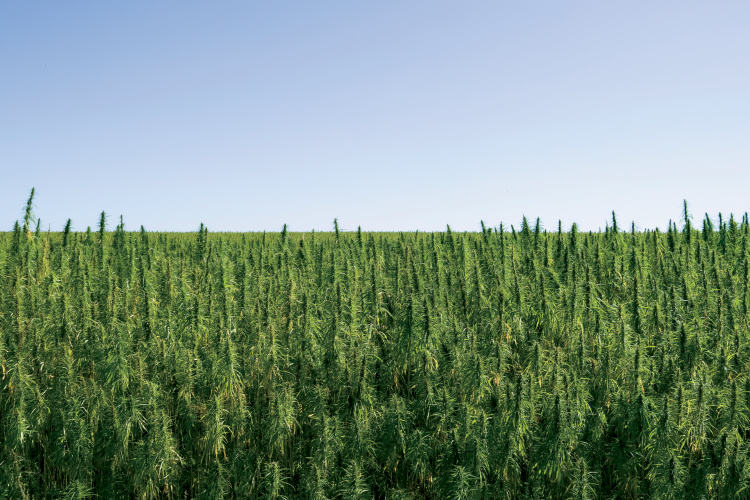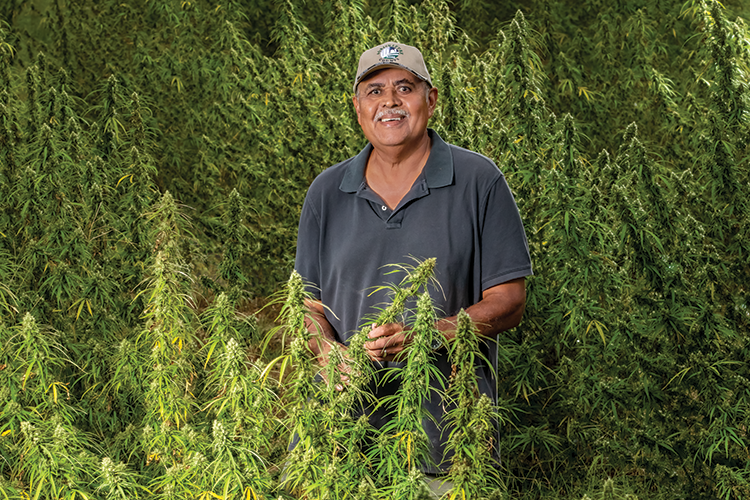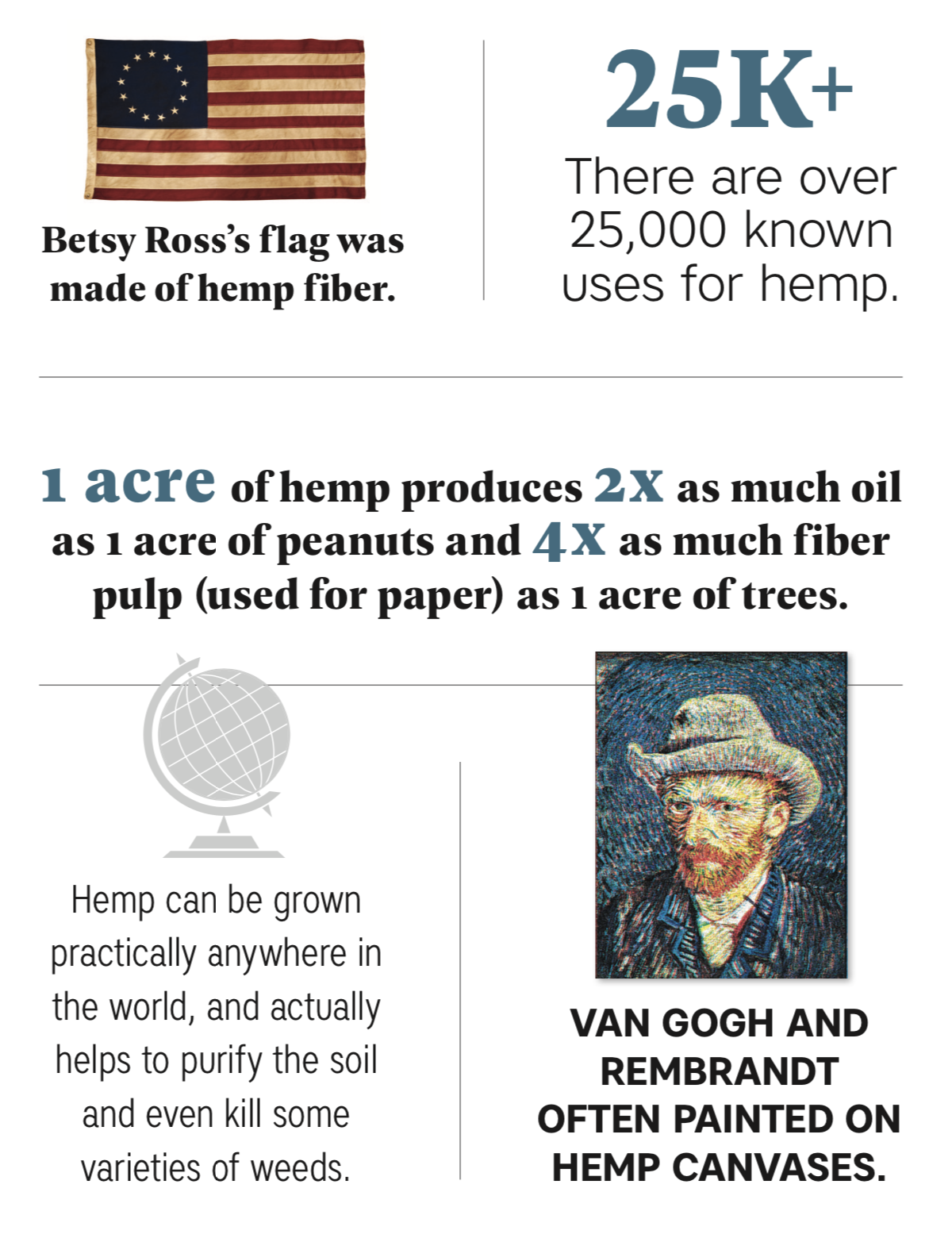Home > Virginia > Virginia Crops & Livestock > Virginia Farmers See a Future in Hemp
Virginia Farmers See a Future in Hemp
In partnership with: Virginia Department of Agriculture and Consumer Services
After hemp-based ointments helped alleviate farmer Clif Slade’s joint and foot ailments, he decided to give Virginia’s comeback crop a try – not just for the sake of health, but for the farm’s bottom line.

On the farm of his childhood, Slade registered and planted 2 acres of industrial hemp, a type of cannabis plant that contains less than 0.3% of the compound delta-9-tetrahydrocannabinol (THC). That level differentiates hemp from its cannabis cousin marijuana.
“What drew me to hemp initially was the healing properties that I read about and experienced from using topical lotions and salves on my joints,” says Slade, a third-generation farmer. “The final straw to make me jump in and test the hemp water was the potential profitability of the crop.”
See more: Why Hemp is Gaining Ground in Virginia
Speaking from research, he estimates that profit to be around $50,000 per acre for his certified organic hemp.
“That potential doesn’t exist for Slade Farms in year one,” says the 66-year-old, a member of the Virginia Board of Agriculture and Consumer Services (VDACS), “but I think the profitability potential will come in year two, three or four.”

How Hemp is Making Headway
Previously prohibited in the United States for more than 70 years, industrial hemp is experiencing a resurgence since its legalization for commercial production under the federal Farm Bill in late 2018 and Virginia law in March 2019. As of November, VDACS has issued 1,183 industrial hemp grower registrations, 262 industrial hemp processor registrations and 117 industrial hemp dealer registrations.
Applicants include experienced farmers like Slade diversifying their crop mix, as well as first-time farmers drawn to the crop. Reports show 2,000 acres planted in Virginia both indoors and outdoors in 2019.
See more: How Virginia is Spreading the Word About Agriculture
“I think there is definitely a sense of excitement about this new crop,” says Erin Williams, VDACS senior policy analyst who leads agency efforts to implement the industrial hemp law. “We’ve seen growers in other states have success and make money on the floral varieties. I think that some farmers are enjoying the experimentation that is involved in finding what is going to work best in Virginia.”

Generally, farmers can grow three types of hemp: varieties for fiber, for grain or for floral material. Grains are commonly used for human food, while fiber is used for textiles and construction materials. In November, Gov. Ralph Northam announced that Virginia is getting its first industrial hemp fiber processing facility, Appalachian Biomass Processing.
From the floral varieties, processors extract cannabidiol (CBD) to make consumer products that are often marketed as alleviators of pain, inflammation and anxiety.
“The success of this season will dictate whether farmers will grow floral varieties or shift to fiber and grain varieties,” Williams says.

Hemp Diversifies and Challenges Farmers
Slade’s first hemp harvest yielded a mix of high-quality plants and those stricken with fungal disease. In 2020, he plans to test more university-recommended varieties to determine the best fit for his farm’s moist climate southeast of Richmond.
“Growing hemp this first year has made me a better farmer and has made me more profitable in the other two crops,” says Slade, who sells certified organic sweet potato transplants and elephant garlic seeds nationwide. “It’s because I’ve paid more attention to management practices.”
He managed irrigation water more precisely and learned that sweet potatoes and elephant garlic grow bigger and better under the white plastic he used for hemp.
See more: Virginia’s Top 10 Agricultural Commodities
Not just registered as a hemp grower, Slade is also registered as a processor. He plans to extract and sell CBD oil to another processor, ideally one that makes organic topical products and pet treats.
“I think the future for hemp producers is very bright once we learn how to do what we need to do,” Slade says. “I will grow hemp in 2020, but not a single plant more than I grew in 2019 until I get the kinks worked out.”




I am interested in partnering with someone in order to grow Hemp on my farm. I have a 2 acre open field that could be used as well as the possibility of erecting a greenhouse at several different sites.
I am also interested in leasing or partnering with someone to grow hemp on my land. I own 40 acres of agricultural land looking for a partner or someone to work with to facilitate. Shoot me an email at 971gresham@gmail.com
I am interested in leasing my land for farming hemp located in Amelia
Leasing land for hemp growers
I have fifty acres looking for someone to lease my land or consulting on farm start and operations.